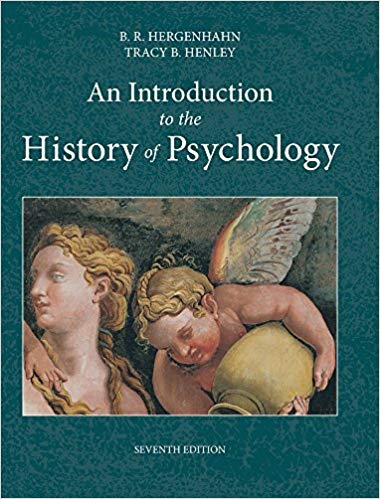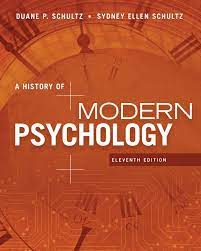Description
Test Bank For An Introduction to the History of Psychology 7th Edition by B. R. Hergenhahn
Chapter_03
|
Multiple Choice |
|
1. Events following the death of Aristotle created a situation in which people sought: a. answers to questions concerning problems of everyday living b. the first principles or universals that underlie physical reality c. philosophical certainty d. a solution to Zeno’s paradox ANSWER: a DIFFICULTY: factual REFERENCES: Prologue |
|
2. The main target of skepticism was dogmatism. A dogmatist is anyone who: a. equates essences with verbal definitions b. confuses names with real things c. claims to have arrived at an indisputable truth d. lives a life of excess instead of moderation ANSWER: c DIFFICULTY: factual REFERENCES: After Aristotle |
|
3. In general, ____ promotes a suspension of belief in anything and ____ promotes a retreat from society. a. cynicism; skepticism b. skepticism; cynicism c. epicureans; stoics d. stoics; epicureans ANSWER: b DIFFICULTY: factual REFERENCES: After Aristotle |
|
4. The Skeptics suggested that by ____, one could avoid the frustration of being wrong. a. arriving at one’s beliefs very carefully b. believing only in ideas held by the majority of people c. following one’s own natural impulses d. not believing in anything ANSWER: d DIFFICULTY: conceptual REFERENCES: After Aristotle |
|
5. What did the Skeptics use as their guide(s) for living? a. philosophical truth, feelings, and convention b. philosophical truth, sensations, and convention c. sensations, feelings, and philosophical truth d. sensations, feelings, and convention ANSWER: d DIFFICULTY: factual REFERENCES: After Aristotle |
|
6. Which statement is most consistent with a Cynic’s point of view? a. People need rules and regulations by which to live their lives. b. Anything natural is good. c. Courage in the face of adversity is the highest virtue. d. The only things worth living for are patriotism, sacrifices for others, and devotion to a common cause. ANSWER: b DIFFICULTY: applied REFERENCES: After Aristotle |
|
7. Who was given the nickname “Cynic,” and lived a self-sufficient, publicly outrageous life? a. Antisthenes b. Gorgias c. Diogenes d. Epicurus ANSWER: c DIFFICULTY: factual REFERENCES: After Aristotle |
|
8. Who preferred naturalistic explanations to supernatural ones and earned the title, “Destroyer of Religion”? a. Antisthenes b. Gorgias c. Diogenes d. Epicurus ANSWER: d DIFFICULTY: factual REFERENCES: After Aristotle |
|
9. Hedonism, according to Epicurus, is: a. pleasure in having one’s basic needs satisfied and avoiding pain b. avoiding pain at all costs c. seeking extreme pleasure d. attaining a relationship with a higher power ANSWER: a DIFFICULTY: conceptual REFERENCES: After Aristotle |
|
10. For the ____, courage in the face of danger was considered the highest virtue. a. Neoplatonist b. Epicurean c. Stoic d. Cynic ANSWER: c DIFFICULTY: factual REFERENCES: Philosophy in Rome |
|
11. For the Stoics, the basic moral choice a person makes is: a. to act or not to act in accordance with nature’s plan b. to live or not to live in accordance with God’s will c. to seek pleasure or to avoid pain d. to follow one’s personal impulses or to conform to society’s values ANSWER: a DIFFICULTY: conceptual REFERENCES: Philosophy in Rome |
|
12. Neoplatonism is a philosophy that emphasized the most ____ aspects of Plato’s philosophy. a. empirical b. empathetic c. rational d. mystical ANSWER: d DIFFICULTY: conceptual REFERENCES: Philosophy in Rome NOTES: new |
|
13. According to Philo, the way to true knowledge is by: a. introspection of the innate truth b. a purified, passive mind receiving divine illumination c. engaging in active reason d. combining empirical observation with rational deliberation ANSWER: b DIFFICULTY: conceptual REFERENCES: Philosophy in Rome |
|
14. Turning away from the empirical world and entering a union with the eternal things that dwell beyond the world of the flesh was characteristic of the good life for: a. Zeno of Citium b. Epicurus c. Diogenes d. Plotinus ANSWER: d DIFFICULTY: factual REFERENCES: Philosophy in Rome |
|
15. The religion in which individuals are caught in an eternal struggle between wisdom and correctness as well as ignorance and evil is called: a. Vedantism b. mystery religions c. Zoroastrianism d. cult of Mithras ANSWER: c DIFFICULTY: factual REFERENCES: Emphasis on Spirit |
|
16. Jesus can be best thought of as a(n): a. philosopher with a focus on God b. empathetic ruler c. complex man with multifaceted goals d. simple man with focused goals ANSWER: d DIFFICULTY: applied REFERENCES: Emphasis on Spirit NOTES: new |
|
17. Which of the following did St. Paul add to the Judaic tradition? a. One God created the universe. b. God is omniscient, omnipresent, and omnipotent. c. Hymans fell from a state of grace in the Garden of Eden. d. God sacrificed his son to atone for our shared transgression, otherwise known as original sin, which allows humans to reunite with God. ANSWER: d DIFFICULTY: conceptual REFERENCES: Emphasis on Spirit |
|
18. The fact that St. Paul valued ____ would have been abhorrent to most Greek philosophers. a. faith above reason b. reason above faith c. intuition above empirical observation d. Epicureanism above Stoicism ANSWER: a DIFFICULTY: applied REFERENCES: Emphasis on Spirit |
|
19. Largely due to this man’s efforts, Christianity was defined by a single set of beliefs and documents. a. Constantine b. St. Augustine c. Thomas Aquinas d. St. Paul ANSWER: a DIFFICULTY: factual REFERENCES: Emphasis on Spirit |
|
20. What concerns were held by both St. Augustine and St. Jerome? a. The question of fate or free will b. The influence that pagan philosophies held over Christians c. The reconciliation of faith and reason d. The quest for salvation by choosing good over evil ANSWER: b DIFFICULTY: conceptual REFERENCES: Emphasis on Spirit NOTES: new |





Be the first to review “Test Bank For An Introduction to the History of Psychology 7th Edition by B. R. Hergenhahn”